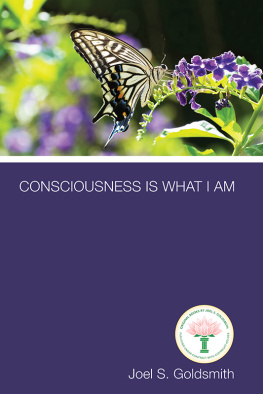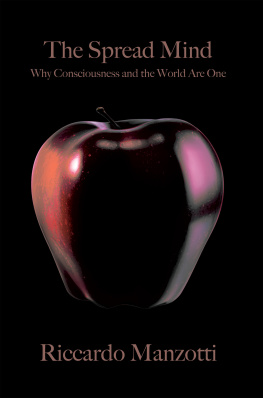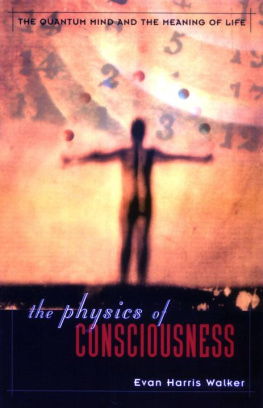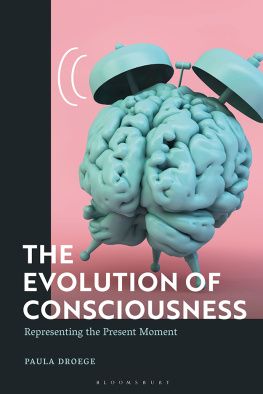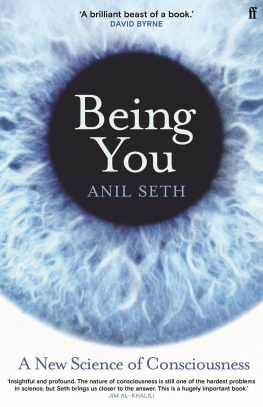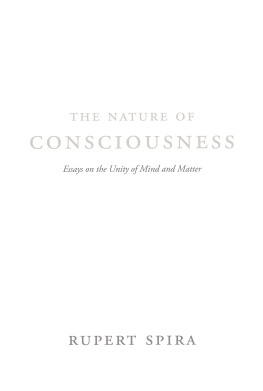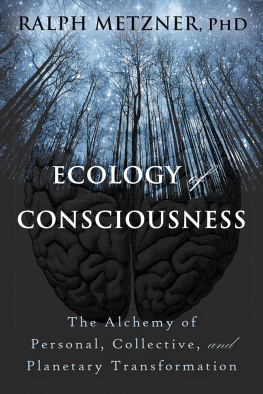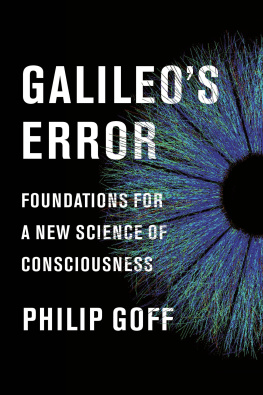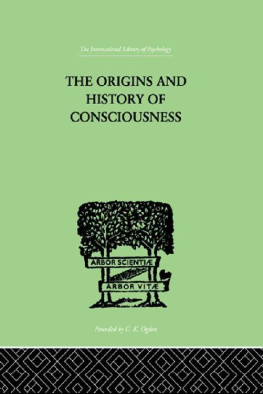I thank the following reviewers for reading the manuscript at various stages of preparation and providing me with comments: Monika Mandoki, Stephen Braude, Emily Cochrane, Antonio Calcagno, Gerry McKeon, Daniel Masri, William Bengston, Eugene Carpenter, Brenda Sanders, Ron Leonard, Brookelynn Rogers, Deric Gorman, Donald Rhynas, Curtis Michael Lee, Gayle Kimball, Bill Gladstone, Rob Horvath, and Dianne Trussell. None of the readers is responsible for any errors or omissions that might remain in the book, nor do they necessarily agree with any of what I say. I thank Shannon Foskett for research assistance, providing critical feedback, and assisting with editing and the production of the book. I am grateful to Kings University College at Western University for research grants that have facilitated my writing. I thank Graham Horswell and the personnel at Imprint Academic for their unreserved support for my writing over the years. And I want to say how much it means to me to have had the encouragement of so many of my students, colleagues, and readers of my books who have expressed their appreciation for my work. Thank you!
Prologue
The unleashed power of the atom has changed everything save our modes of thinking and we thus drift toward unparalleled catastrophe.
The academic landscape supporting the study of consciousness is shifting. It is moving away from materialist versions of reality toward some yet-to-be-articulated post-materialist interpretation. In a book co-authored with Julia Mossbridge, Transcendent Mind: Rethinking the Science of Consciousness , we have described this shift, bringing readers from one side of the crevasse to the other. In particular, we have reviewed empirical evidence that some version of consciousness is not a by-product of brain activity, that it has nonlocal properties including the ability to perceive and act at a distance without apparent physical mediation, and that human consciousness appears to survive the death of the physical body. Those are the fundamental characteristics of a post-materialist notion of consciousness. I will review them briefly here as part of Chapter 1, Consciousness Unplugged. Beyond them, this book takes up several substantive issues that arise in the new academic landscape.
The nonlocality of consciousness raises questions about boundaries. How does nature know where to draw them? In Chapter 2, Meaning Beyond the Human, I look at some experiments with non-contact healing, anomalous quantum processes, and poltergeist activity to bring this question into focus before suggesting the existence of meaning fields as a solution to this problem. We will also see the extent to which direct mental influence can affect physical manifestation. In Chapter 3, Anomalous Transformations of Physical Manifestation, I look at examples of dramatic physical changes associated with direct mental influence and conclude that it appears that physical manifestation is considerably more malleable than we usually think that it is. At the time of my writing this book, humanity faces substantial crises, among them a viral pandemic, degradation of the environment, and the threat of nuclear war. These sharpen our focus. Are there ways in which our expanded knowledge of consciousness can be used for the resolution of these crises? Can we engage in subtle activism, whereby mental activity, such as meditation, directly moves our planet toward greater well-being? That subject matter is taken up in Chapter 4, Planetary Transformation. And finally, increasing numbers of people are finding themselves in temporary or permanent expanded states of consciousness characterized by attenuated mental chatter and enhanced feelings of intimate connection to reality. In Chapter 5, Radical Self-Transformation, we will have a look at such self-development and consider its significance for the crises that we face today.
When I say that the study of consciousness is shifting, that mind could exist without the brain, and that human consciousness could survive the death of the physical body, I am not merely gesturing toward some vaguely imagined human potential, I am talking about concrete anomalous events that manifestly occur for people. Those people include scientists and academics who usually remain silent about such experiences so as not to incur the disapproval of their peers. And those people include myself, so I will use examples from my own experience in order to engage with the material in this book. Each person has a boggle threshold for how much craziness she can accept before shaking her head and rolling her eyeballs in disbelief. I am fully aware of that, but at some point, we need to get past the introductory material and start moving the discussion about consciousness forward onto more substantive territory, irrespective of how crazy that landscape might initially seem to be to us. So, to boldly set the tone for this book, let me start with a personal experience that appears, on the surface, to be an interaction with a deceased scientist. And, yes, I am my own harshest critic, so I, myself, am not sure what to make of this. And the reader will no doubt make her own judgments about it.
Richard Feynman?
One evening I was driving by myself to a hot yoga class when I smelled cigarette smoke in my car for about a minute. Not active cigarette smoke, but rather the smell of a heavy smoker sitting beside me. And, in recalling the event, it does not seem to me that the smell was physically present in the car so much as it was directly present to my awareness. I do not smoke, nor had a smoker recently been in my car, nor do I just smell smoke in my car as a matter of course. However, I had been reading some of Richard Feynmans writing, so that he had been on my mind, and I wondered whether Richard, a deceased physicist who had at one time been a smoker, was showing up in my car. The following day, driving by myself home from school, once again, for a minute or so, I had the distinct impression of smelling a heavy smoker together with me in the car.
Is it possible that the deceased Richard Feynman was actually together in the car with me? This might seem manifestly impossible, but there is a growing body of literature about after-death communication (ADC), the ostensible communication of the living with the deceased.
I contacted Angie Aristone, a medium with whom I had done some work for about a decade, to come over to my place to see if we could talk to Richard. We had done this sort of thing before. As readers might already know, a medium is a person who appears to have the ability to communicate with the deceased. In a number of experimental studies, it has been shown that good mediums can obtain correct information through anomalous means. I met with Angie on Wednesday morning, December 10, 2014 and asked her if Richard Feynman were around. She had not known that I would be asking about him. I took handwritten notes of our interaction.


